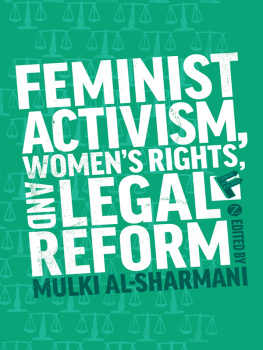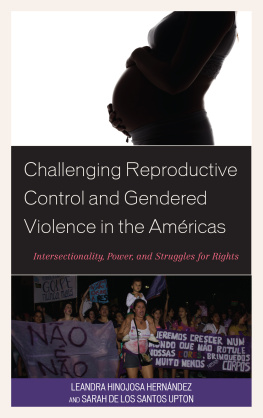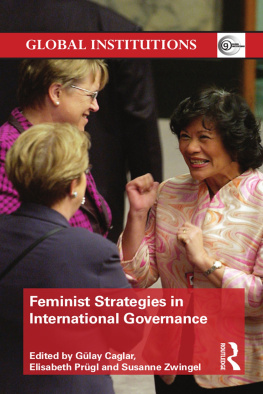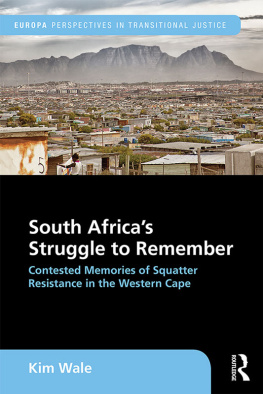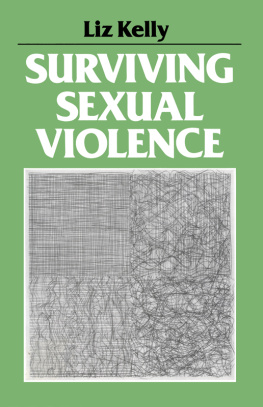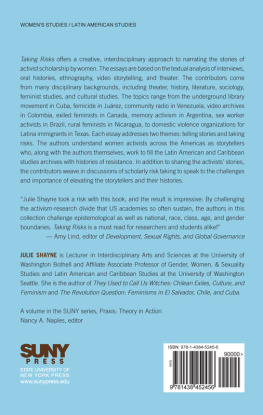2020 by the Board of Trustees
of the University of Illinois
All rights reserved
Library of Congress Cataloging-in-Publication Data
Names: MacManus, Viviana Beatriz, 1981 author.
Title: Disruptive archives: feminist memories of resistance in Latin Americas dirty wars / Viviana Beatriz MacManus.
Description: Urbana: University of Illinois Press, [2020] | Series: Dissident feminisms | Includes bibliographical references and index. |
Identifiers: LCCN 2020030516 (print) | LCCN 2020030517 (ebook) | ISBN 9780252043536 (cloth; alk. paper) | ISBN 9780252085437 (paperback; alk. paper) | ISBN 9780252052415 (ebook)
Subjects: lcsh: FeminismLatin AmericaHistory20th century. | State-sponsored terrorismLatin AmericaHistory20th century. | WomenViolence againstLatin AmericaHistory20th century. | WomenPolitical activityLatin AmericaHistory20th century. | Political violenceLatin AmericaHistory20th century. | Latin AmericaPolitics and government20th century.
Classification: LCC HQ 1460.5 . M 32 2020 (print) | LCC HQ 1460.5 (ebook) | DDC 305.42098/0904 DC 23
LC record available at https://lccn.loc.gov/2020030516
LC ebook record available at https://lccn.loc.gov/2020030517
For my parents,
Eduardo MacManus and Susanna Robertson
We are not victims, we are protagonists of this history we were not uncritical victims, because above all we were politically militant.
Margarita Cruz, survivor of the Argentinean repression who was detained at the Escuelita de Famaill in Tucumn, Argentina
There are many brave women, but they are anonymous there are many women who dont speak of this. Many people never spoke of this again. Many people were scared. And I understand them there are many women who were protagonists of this history, and who form part of this memory and who have not spoken of this again. And they do not want to, and I respect that and well, before only the men narrated these histories until we women began to speak women participated in social movements, in the Communist movement, but womens participation in political struggles were not visible.
Ana Ignacia Rodrguez Mrquez, survivor of the 1968 Mexico City massacre and former political prisoner
Acknowledgments
This book is a labor of love shaped by the generosity of family, friends, mentors, colleagues, activists, and many other people in the United States, Mexico, and Argentina. I would like to first thank the women I interviewed in Argentina and Mexico between 2009 and 2014 whose stories form the narrative arc of this book. In Mexico, I would like to thank Alejandra, Bertha Lilia Gutirrez Campos, Ana Ignacia Rodrguez Mrquez, Maricela Balderas Silva, and Luz Aguilar Terrs. In Argentina, many thanks to Margarita Cruz, Marta Daz, Nilda Eloy, Lelia Ferrarese, Liliana Forchetti, Mirta Sgro, and Silvia Yez for sharing their stories with me. They welcomed me into their lives and shared intimate, harrowing, and inspiring stories of survival and resistance to state terror. Their stories of lucha por la justicia kept me afloat during the hardest moments of writing this book, and turning to their words reinvigorated me with the passion for justice and storytelling that helped to create this project.
Storytelling as a form of resistance is something I learned from members of my family, particularly my maternal grandparents. My investment in the construction and recovery of a feminist historical archive in Latin America is a notion that was inculcated by my great-grandmother and grandmother, Aurora and Ana Guerrero, who immigrated from Zacatecas, Mexico, to Los Angeles in the 1920s. They would often share stories of the hardships they experienced as immigrant women in Los Angeles, but they always emphasized the importance of love, family, and giving back to the community. Their bravery has taught me the importance of storytelling as a form of Latin American feminist resistance, and legacies of Latin American womens survival serve as the foundation to this book.
This book is also inspired by my grandfather, Luis Robertson, whose stories of surviving extreme poverty during pre-Revolution era Cuba left an indelible mark on my young mind. His passion for history, justice, leftist politics, as well as his unwavering support of the Cuban Revolution, profoundly shaped my political consciousness. This book is a product of his love for his grandchildren, but also his love for justice.
As for my parents, Eduardo MacManus and Susanna Robertson, there are truly no words to capture the love, appreciation, and admiration I have for you both. You taught me the value of an education as well as the importance of politics and justice for all marginalized communities. Thank you for providing your children with the support, love, and encouragement necessary to thrive and feel nurtured. This book is truly written in your honor, and I cannot express to you here the profound love I have for you both. Los quiero tanto, tanto.
I would also like to convey deep gratitude and love for the rest of my family membersmy brother Carlos, my Ta Betty, and all mis primas queridas who provided me with constant and unconditional love and support. A mi suegra, Carmen Velzquez y toda la familia Velzquez en Carolina del norte, gracias por dejarme ser parte de tu familia tan linda.
The fieldwork I conducted in Argentina and Mexico would not have been possible without the generosity of various human rights groups, civic organizations, and individuals who went above and beyond to support me during my research process. It is through these organizations that I was able to connect with the women I interviewed for this project, and I am indebted to their kindness and generosity. In Mexico City, I want to specifically thank Romeo Cartagena of El Comit 68 for his friendship and also his overwhelming support when I conducted fieldwork in Mexico. I would also like to thank colleagues Adela Cedillo, Fernando Caldern, and Alex Avia for their support of my project and for connecting me with folks in Mexico. In Argentina, many thanks to Veronica Jeria of La Asociacin de Ex-Detenidos Desaparecidos for allowing me to work with their organization and to interview various members. To my friend Sara Kozameh, thank you for your friendship, but also, thank you for connecting me to the incredible activists and survivors in Argentina. The tireless advocacy and justice-focused projects of these organizations and survivors keep the historical memory of the Dirty Wars alive in Mexico and Argentina.
I would be remiss not to acknowledge the various fellowships and grants that funded the research for this book. As a graduate student at UC San Diego, I received generous grants and fellowships from the Department of Literature, the Center for Iberian and Latin American Studies, and the Institute for International, Comparative, and Area Studies. Through the UC Human Rights Fellowship, I was able to spend the summer of 2009 in Argentina working closely with La Asociacin de Ex-Detenidos Desaparecidos. I am also thankful for my experience as a graduate student fellow of UCSDs Audiovisual Archive of the Spanish Civil War/Francoist Dictatorship in 2008. A deep, heartfelt thank-you to my mentors at UCSDLuis Martn-Cabrera, Jaime Concha, Rosaura Snchez, Rosemary George, and Lisa Lowefor helping me with the initial ideas that inspired this book.


